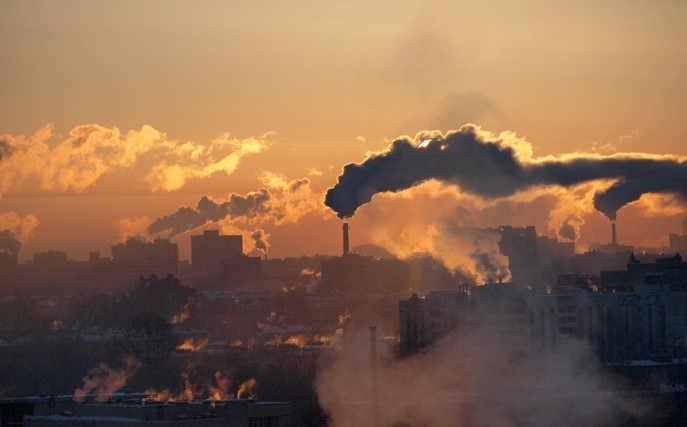Environmentalist groups and NGOs at the COP26 climate change conference let their opposition be known to financial sector's suggestion to create a voluntary carbon market
GLASGOW — Last week at the United Nations Conference of the Parties (COP26), the International Sustainable Standards Board was launched to create an international baseline of sustainability reporting standards; however, it will take at least a year for financial regulators to begin adopting its standards.
Also earlier in the conference, a number of countries forged agreements around deforestation and methane emissions that may help banks and other financial institutions around the world nudge themselves and their corporate clients toward a more sustainable future.
Then, an attempt by the banking sector to create a voluntary carbon market, by finalizing Article 6 of the Paris Accord, during COP26 was criticized as a “get out of jail free card” by environmentalists.
Jennifer Morgan, executive director of Greenpeace International, said nongovernmental organizations (NGOs) had investigated many carbon offset projects since they first appeared in the 1990s, and concluded that they “do not work.”
“Banks are looking to make money off a new market and fossil fuel companies are looking to not have to change their business models or go out of business, so they’ve revitalized this thing as some new shiny thing that will bring no benefit to society,” Morgan explained. “And that’s why we’re calling it out because it’s not about getting financing to developing countries… It’s a get out of jail free card. And that’s just not on in 2021.”
Greenpeace would rather see Article 6 remained unfinished than it being used to bring about voluntary carbon markets, she added. And Greenpeace is far from the only NGO concerned about carbon markets. In October, environmental charity Friends of the Earth was one of 170 NGOs that signed a statement opposing carbon markets. The group also produced a report detailing the harm carbon offset markets had already caused, labelling them a “dangerous con.”
Mark Carney, U.N. Special Envoy for Climate Action & Finance, dismissed the idea that carbon markets were a “get out of jail free card”. Carney spoke alongside Bill Winters, CEO of U.K. financial giant Standard Chartered, at the Green Horizon Summit in Glasgow. Both said they believe carbon markets have a critical role to play in helping the world achieve net zero.
Winters chairs the Taskforce on Scaling Voluntary Carbon Markets, an initiative founded by Carney. In October, the Taskforce spawned the Integrity Council for Voluntary Carbon Markets as part of its effort to bring credibility to voluntary offsets.
Acknowledging problems with carbon offsetting in the past, Winters said voluntary carbon markets were in addition to transition plans — not an alternative. “The voluntary carbon market is fundamentally about corporations that have set out ambitions for net zero,” Winters said. “[They are] completely on their transition pathways but have some difficult, or impossible to evade, residuals and are compensating [for those] on the way to net zero.”
Carney pointed to the presence of three indigenous people on the Integrity Council, and said its overall composition was 40% made up of representatives from emerging and developing countries.
Safeguards
Tariye Gbadegesin, co-chair of the Carbon Markets Integrity Steering Committee, which will work with the Integrity Council, said historically there had been insufficient focus on the integrity of carbon markets. Speaking during a panel discussion on building a carbon market that worked, Gbadegesin said her organization would make sure that there were safeguards in place to ensure the integrity of carbon markets.
“The Voluntary Carbon Markets Integrity initiative is focused on supporting organizations with creating a framework for integrity,” she explained. “A framework for how corporates can make claims about net zero using voluntary carbon markets. We think voluntary carbon markets are an incredible thing.”
Carbon markets are not the only way to correct a “market failure” of global warming, noted Prof. Lord Nicholas Stern, chair of the Grantham Research Institute on Climate Change and the Environment at the London School of Economics, during the same panel discussion.
“Standards, for example, can be very important,” Prof. Lord Stern added. “You know we regulated out [of existence] the incandescent light bulb in Europe. So, standards can be very important in tackling market failure.”







